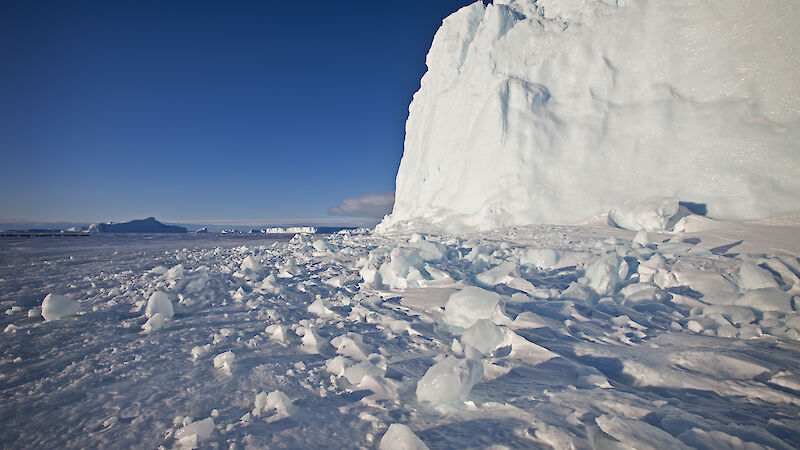Australia’s delegation to the 36th meeting of the Commission for the Conservation of Antarctic Marine Living Resources (CCAMLR) says headway was made on a number of important Antarctic research and science priorities.
Australia’s CCAMLR Commissioner Ms Gillian Slocum said that in particular, Australia’s initiation of a risk assessment framework for the krill fishery in East Antarctica received broad support.
This approach, similar to one endorsed for the Antarctic Peninsula last year, enables Members to work together to sustainably manage krill stocks and consider the needs of krill-dependent animals in the region.
Ms Slocum said with the recent calving of the Larsen C ice shelf, CCAMLR had built on an agreement last year and upgraded the level of protection granted to this area for 10 years.
“This will help us understand ecosystem change in Antarctica, in the absence of fishing,” she said.
However Ms Slocum said the meeting saw a lack of progress on other issues, despite the best efforts of many delegations.
Ms Slocum expressed disappointment that the East Antarctic Marine Protected Area (MPA) was not adopted and at the lack of progress on addressing the impacts of climate change.
The MPA proposal put forward by Australia and the European Union has been under consideration of the Commission since 2012 and endorsed several times as using the best‑available science. However it requires the agreement of all members of the Commission before it can be adopted.
“We had hoped the establishment of a marine protected area in the Ross Sea region last year would pave the way for the adoption of the East Antarctic MPA in the Southern Ocean at this year’s meeting, but sadly were not able to achieve that outcome, despite strong support.”
Ms Slocum said climate change is having a tangible effect in Antarctica.
“While CCAMLR was not able to adopt a Climate Change Response Work Program this year, Members will continue to work together ahead of the next meeting to better incorporate climate change impacts into the Commission’s decision‑making process.”
Ms Slocum welcomed the appointment of Dr David Agnew as the new Executive Secretary of the CCAMLR Secretariat replacing Mr Andrew Wright. Dr Agnew has most recently worked for the Marine Stewardship Council as Science and Standards Director.

